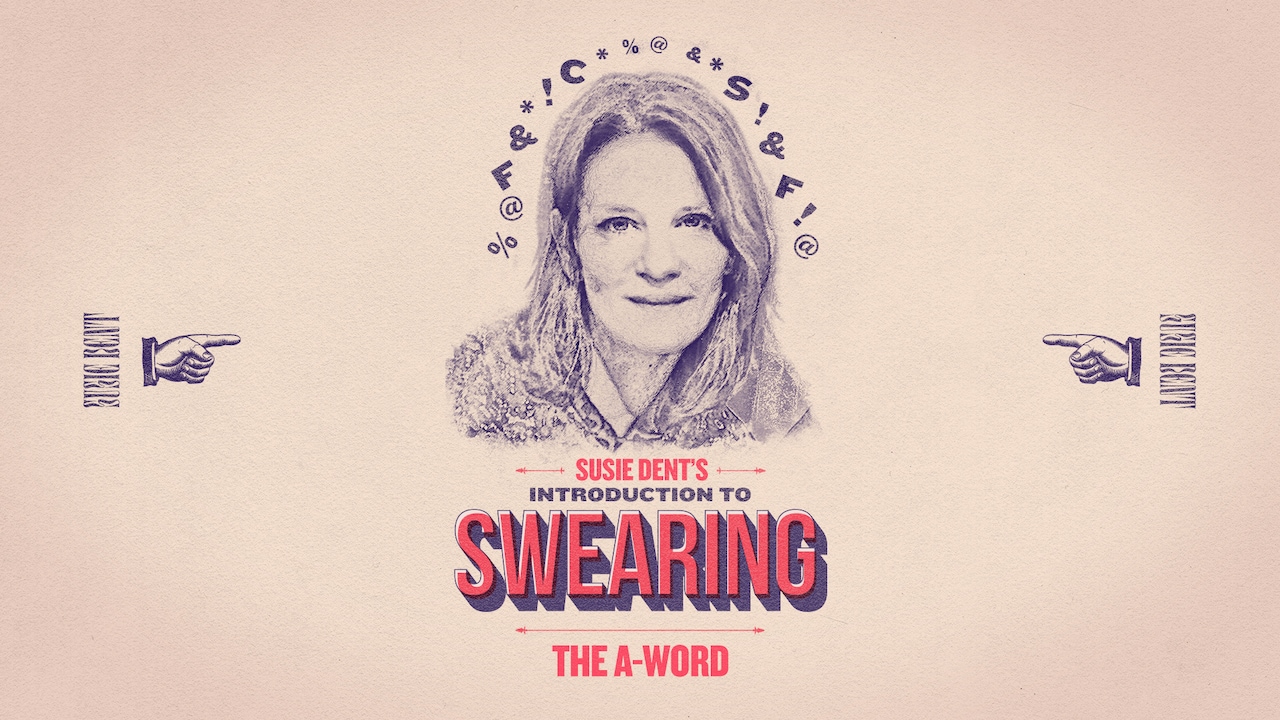
Susie gets to the bottom of another of the English language’s filthy words…

‘Arse’, like ‘bollocks’, is one of the oldest swears in our (unrelated) arsenal. It made its first appearance in Abbot Aelfric’s Latin-English Dictionary of 1000, for which he translated the Latin nates, ‘buttocks’, as ‘ears-lyre’. That ‘ears’, confusingly to modern ears, was one of the earliest spellings of ‘arse’, and its usage was entirely neutral, with no hint of taboo. As now, it meant quite simply the buttocks or anus. These were the days when our intestines were our ‘arse-ropes’ and our ‘arse-gut’ the rectum, and when, rather gloriously, the penguin and various other wading birds went by the name of ‘arse-feet’. ‘Arse-wisp’, of course, was toilet paper (together with ‘bumfodder’, eventually shortened to the throwaway ‘bumf’).
Rather inevitably, ‘arse’ moved from the purely anatomical into slang, whereupon its meaning became, shall we say, a little wobbly. From the buttocks the word extended to mean the vagina and even occasionally the penis. And here it also became off-limits – indecent in polite company and unprintable in its full form. ‘Arse’ was even censored in Francis Grose’s Classical Dictionary of the Vulgar Tongue, a bawdily brilliant collection of the language of the common people, including the underground codes of cutpurses, gangsters, and lowlifes. Yet Grose saw fit to add a hyphen to such entries as ‘to hang an a-e and sh-te through his ribs: a saying of one who lends his money inconsiderately’, and the delightfully ambiguous ‘ars musica: a bum-fiddle’ (I think he meant flatulence).

And here in the murky shadows ‘arse’ remained well into the 20th century, when (as ‘ass’) it was cited as one of the top ‘filthy words’ by the US Federal Communications Commission. Four decades later, both ‘arse’ and ‘ass’ would scarcely raise an eyebrow in any comedy panel show, although perhaps many of us unconsciously tiptoe around it with the erroneous (but increasingly popular) ‘I really can’t be asked’.
Want more foul-mouthed indecency? You can find all of Susie Dent’s Introduction to Swearing here!
Figuratively speaking, an ‘arse’ can of course also be a fool or idiot, a much-later adaptation that is a partial riff on the ‘ass’ that is a donkey. As far as the backside goes, however, it’s worth saying that ‘ass’ never belonged exclusively to the US. Shakespeare made full use of its punning potential, particularly in A Midsummer’s Night’s Dream‘ when the character Bottom wears an ass’s head.

Edwin Landseer, Scene from A Midsummer Night’s Dream, 1851
The list of ‘arse’ combinations is long. There is the arse-hole of course, as well as the arse-crack and arse-cheek. With apologies to anyone of a sensitive disposition, ‘arse-grapes’ (or, worse, ‘arse-cabbage’) are your hemorrhoids, an ‘arse-pin’ is a penis, and ‘arse-piss’ diarrhea (I’m not even going to mention ‘arse-nuts’, but if you’re familiar with the word ‘dingleberries’ you’ll know what I mean). An ‘arse-creeper’ or ‘-licker’ is a sycophant – leaving hundreds of homophobic versions aside. If you do something ‘arsepants’ you do so in a highly suspicious or contemptuous manner, while in Australia and New Zealand, an ‘arseache’ is either a supremely annoying individual or a fit of appalling temper.
As a verb, ‘arse’ has even greater potential. We can ‘arse about’ by wasting time, ‘arsle’ by walking backwards, ‘arse it/out/off’ by leaving at speed, or ‘arse something up’ by making a total botch of it. In the 18th century, to ‘give one’s arse a salad’ was to have sex outdoors, while to ‘polish one’s arse on the top sheet’ was to have sex in the missionary position.

As for arsy expressions, if someone has ‘more arse than class’, they clearly think ‘the sun shines out of their arsehole’ or even that their ‘arsehole squirts perfume’. Then again, as Jonathon Green’s quite brilliant Dictionary of Slang tells us, they might simply have ‘more arse than a married cow playing snooker’. Any such accusations could of course be countered with a simple ‘My arse!’.
Given all of this, you might decide that ‘arse’ is the ‘assholingest’ swear you’ll ever need, or conversely that it brings your ‘arse to an anchor’ and in need of a sit-down. Either way, its story is as long and rich as any swear in the modern lexicon.





10 Comments
I’m from New Zealand and am not that familiar with the term Arse-ache. I like it though. Will try to get ot to catch on but that might be a bit of a Ball-ache.
‘give one’s arse a salad’ I’m going to be giggling about that one all day! ??
Susie is a fantastic lexicographer. When explaining words on 8 out of 10 cats I could just listen to her all night.
This made me giggle…Would it be worth noting that Arse-nal have made a complete arse of things, since they lost their manager…Arsen Wenger…
I think the word arse is great for crossing so many English speaking countries when referred to an individual. No one can ever assume it a good thing.
Well – interesting that our cousins across the water call it ‘ass’ – implies stupid as well in English ??
Anglo-Saxons not acquainted with penguins. Great Auks, perhaps.
@chrisjtrogers The Welsh named the Great Auk pengwyn. from pen meaning head and gwyn meaning white
You won’t be surprised to learn that the Wheatear is a type of bird with a white rump.
In Barrow-in-Furness, someone angry or sour-faced is said to be “seeing his arse”, from “He’s seen his arse and he doesn’t like the look of it”